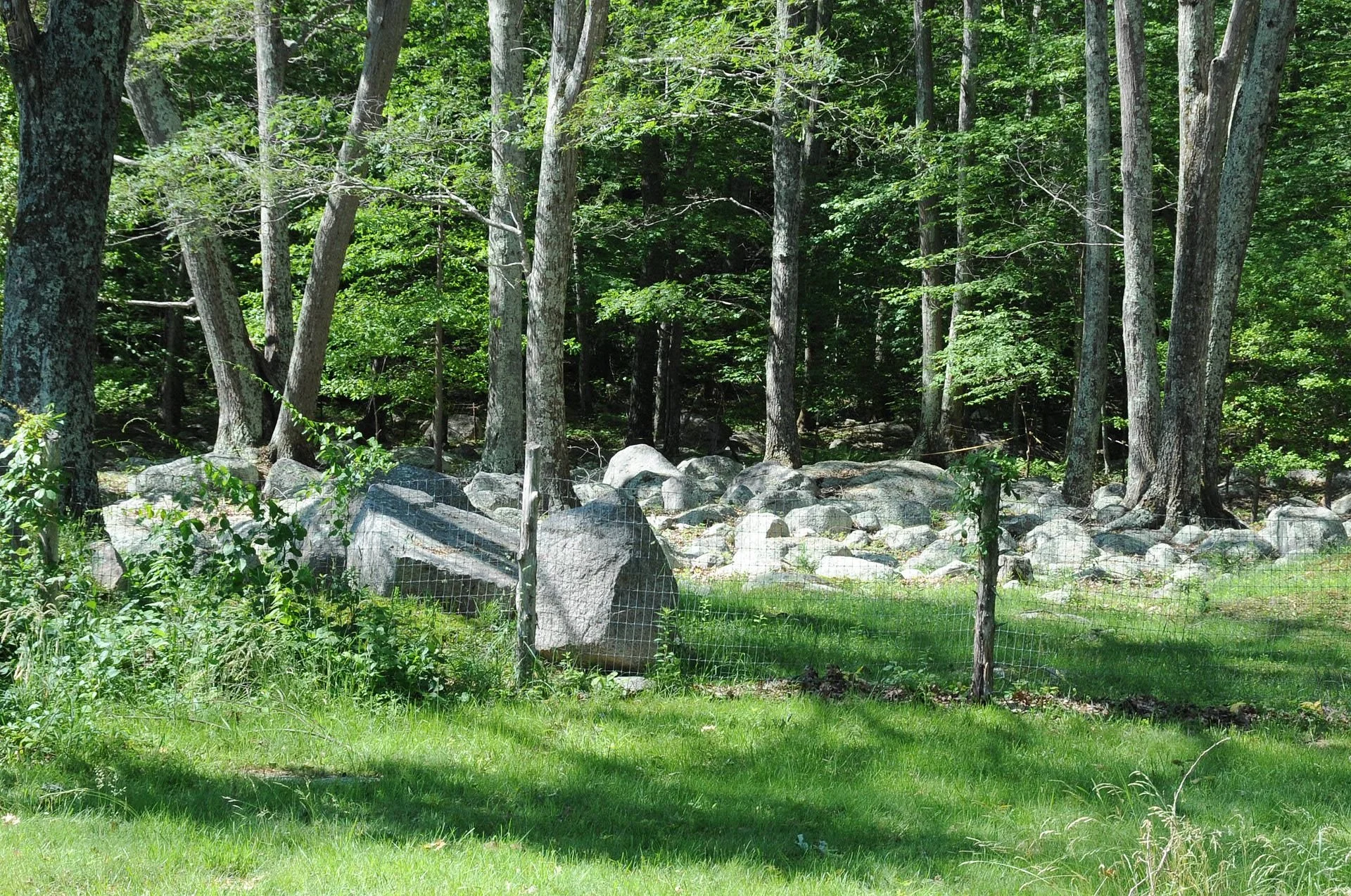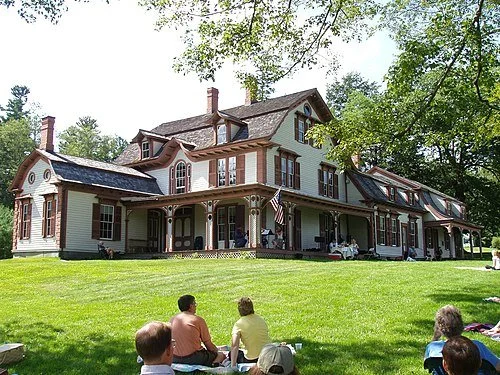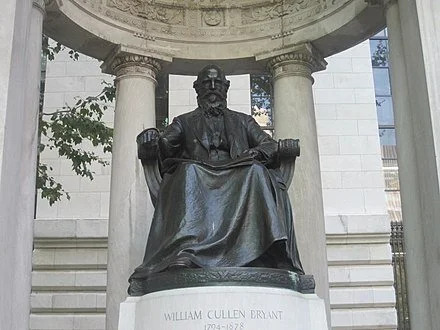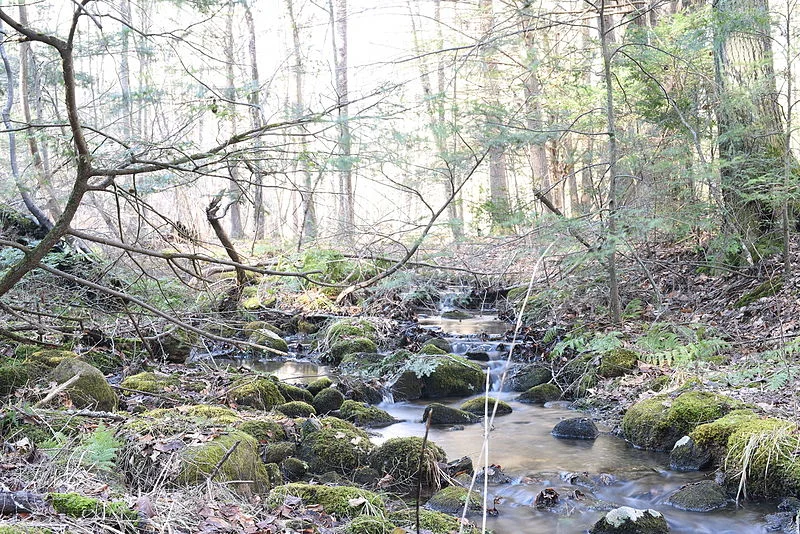
‘Through deep impartial woods’
Remains of stone walls in Exeter, R.I.
— Photo by JERRYE & ROY KLOTZ, M.D.
“What is it for, now that dividing neither
Farm from farm nor field from field it runs
Through deep impartial woods, and is transgressed
By boughs of pine or beech from either side?”
— From “A Wall in the Woods: Cummington,’’ by American poet Richard Wilbur (1921-2017)
It’s highly unusual in the U.S. for a government seal to feature a literary figure. Cummington honors its native son William Cullen Bryant (1794-1878), a romantic poet, journalist and long-time editor of the New York Evening Post.
William Cullen Bryant Homestead, in Cummington, part of the Massachusetts park system.
William Cullen Bryant Memorial in Bryant Park, Manhattan, next to the New York Public Library’s main building.
Noises in a summer night
“What rattles in the dark? The blinds at Brewster?
I am a boy then, sleeping by the sea,
Unless that clank and chittering proceed
From a bent fan-blade somewhere in the room….’’
— From “In Limbo,’’ by Richard Wilbur (1921-2017), New England-based poet, literary translator and teacher. He served as U.S. poet laureate. The “Brewster’’ here is the town on the Cape Cod Bay side of the peninsula. It’s best known now as a summer-home center.
Linnell Landing Beach, in Brewster.
Brewster was named for Elder William Brewster, the first religious leader of the Pilgrims at Plymouth Colony. The town grew around Stony Brook, where the first water-powered grist and woolen mill in the country was founded in the late 17th Century — an early sign of New Englanders’ world-famous inventiveness. Rich sea captains built many of the town’s stately homes, some of which are now inns and bed-and-breakfasts. The most notable of these are the Brewster Historical Society’s Captain Elijah Cobb House, on Lower Road, the Crosby Mansion, on Crosby Lane by Crosby Beach, and the Captain Freeman Inn on Breakwater Road.
Stony Brook mill.
Stay within the music
Stream in Southbury, Conn.
-- Photo by Karlfonza
"New England's brooks, streams and small rivers have incited many to poetry, starting with Anne Bradstreet's meditations on the Merrimack -- in whose tributary the Concord Emerson discovered a symbol of the flow of Being. Frost's 'West-Running Brook' handsomely ponders one of our lesser watercourses. I suppose I could stand beside the brook in our woods and rehearse such meditations, or think up something of my own about the great symmetries of the creation, of which the water cycle is one. But such thoughts are best worked out in the study.
The thing to do with a brook, I think, is to climb or descend it, now scrambling along the bank, now jumping across from rock to rock, now crossing back over a fallen tree trunk. That way you are always within the infinitely changing music of it.''
--- From poet Richard Wilbur's essay "New England Brooks,'' in the book Arthur Griffin's New England: The Four Seasons. Mr. Wilbur died Oct, 14 , in Belmont, Mass.
'Blessed with truth'
Your voice, with clear location of June days,
Called me outside the window.You were there,
Light yet composed, as in the just soft stare
Of uncontested summer all things raise
Plainly their seeming into seamless air.
Then your love looked as simple and entire
As that picked pear you tossed me, and your face
As legible as pearskin's fleck and trace,
Which promise always wine, by mottled fire
More fatal fleshed than ever human grace.
And your gay gift—Oh when I saw it fall
Into my hands, through all that naïve light,
It seemed as blessed with truth and new delight
As must have been the first great gift of all.
Richard Wilbur, "June Light''






